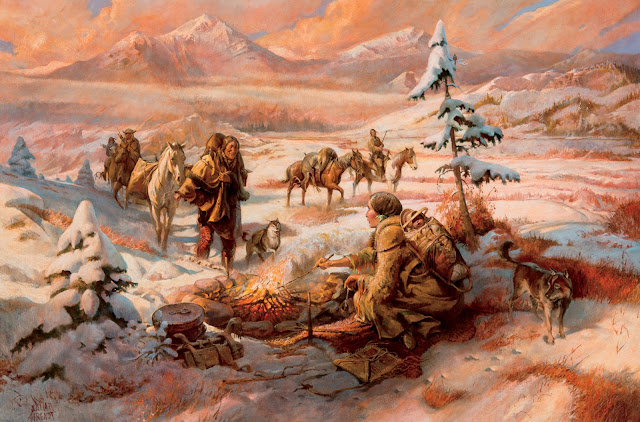However, what about the other civilizations that garner no real notability? For most people who have heard of past civilizations their knowledge is limited to what they may have heard or lightly read in their past. Though it is those civilizations that may be an enigma that are often the most remarkable. Take the Anasazi of the Southwestern United States, or the Inca of Peru, or even the remarkable Songhai of Western Africa: All of these civilizations share a uniqueness that is common with all of the civilizations in history. So why is it these civilizations are not discussed? Is it because of the old quote by Winston Churchill that states, "History is written by the victors"? I believe that may be a part of it, but I believe that the unspoken and lesser known civilizations play a larger role than many historians give them credit.
Many civilizations forge their own unique approach to their equally unique areas. Some of these civilizations stick to the traditional methods of hunter-gatherers, some are contempt with simply creating one city-state, others are more open to expansion. What truly makes a civilization, in my own opinion is not so much the city, but the concept of a large group of people working in conjunction with others. The reason I apply this concept is because some civilizations only formed cities later in their history. One key example would be the Mongolians, who were nomads on the Steppes of Mongolia near present-day China. Though they were nomads, they were still a unique civilization in that they had no cities to call their own in regards to actually settling them initially.
(Above) Shoshone Hunters Return by William Ahrendt
So, I will begin by explaining a civilization that has captured my interest and that would be the Shoshone of the Western Plains of the United States of America. This particular tribe is notable for being located in the present-day state of Nevada and their shift in culture. Prior to the Spanish exploration in the New World, the Shoshone were nomadic and hunted on foot (this was because horses had been hunted to extinction during the Paleolithic Era). However, when the Spanish arrived they brought with them horses, and so began a transition of the Shoshone people's way of life. After the introduction of horses, the hunters began to utilize the hardy animal for hunting, warfare, carrying goods such as food, clothing, pelts and so forth. This drastically changed the culture of the Shoshone for the better, as they became better hunters of their native game of American Bison, deer, foxes, and other game.
However, while directly obtaining the horses that were either escaped, stolen or captured from a war band, the Shoshone indirectly came into contact with the various diseases that plagued the Europeans. These diseases, such as smallpox, measles, and others resulted in an epidemic in the Shoshone and other Native American tribes. Though their tribe survived, the people of the Shoshone were fewer in number due to the deaths of their tribesmen. It wouldn't be long until other entities would arrive to combat the Shoshone tribe, however in the form of the Independent Nation of Texas, the United States and the Mexican government. All of these civilizations would interact with the Shoshone, either through trading of goods and services for weapons and horses, or through war for American/European valuables.
Today, I'd like to announce that I'll be exploring the development of the Shoshone civilization through Sid Meyer's Civilization V for PC. Through this turn-based strategy game, I will explore the unique traits that separate the Shoshone from other civilizations in the game, such as the Maya, Inca, Americas, British, Zulu, and so on. I believe that the best way to experiment with this civilization is through adjusting the game settings to the third hardest difficulty, Emperor and seven for the amount of rival civilizations. In addition, the game will be set to "marathon" which is the lengthiest setting for any game of Civilization. By setting this stage, I hope to gather more knowledge on the Shoshone, and their approach to warfare, culture, economics, religion and other traits that make up a civilization.




